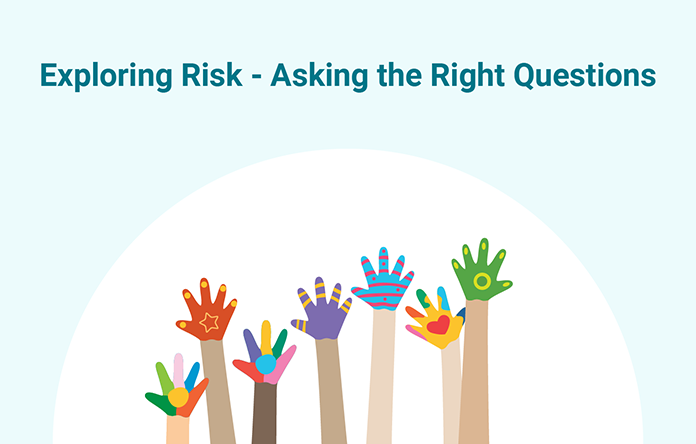
We recently welcomed guest speakers from Young Somerset Mental Health Support Team (MHST) at our latest webinar for mental health professionals working with children and young people in education settings.
Ruth Gavenlock and Gemma Fitzjohn, Service Managers – Mental Health and Wellbeing at Young Somerset, shared how their service assesses risk and provided practical advice around the types of questions you can ask to assess, support and safeguard the young people you work with.
Please see the full webinar presentation below:
Referrals to Young Somerset MHST:
Young Somerset’s Mental Health and Wellbeing Team consists of Education Mental Health Practitioners (EMHPs), Children’s Wellbeing Practitioners (CWPs) and a Wellbeing Support Team (WST).
Requests for support can come from a variety of sources:
- From Mental Health Leads for EMHPs and from a range of professionals for CWPs. CWPs also take requests from parents/carers and young people.
- With self referrals for the CWP service, if risk is mentioned then someone from the team will ring that day and, if appropriate, fill out a Safety Plan.
- In schools the Safeguarding Lead/Supervisors will be the first port of call.
Top Tip: iaptus digital care record supports Young Somerset MHST with self referrals. Children, their parents or carers can refer themselves quickly and easily via a short, secure form on your organisation’s website, without the need to speak with a referring health professional. iaptus will automatically create and populate a new patient record that you or a colleague may accept. iaptus is the perfect system to record notes and view shared data in real time, helping teams to discuss referrals and inform clinical supervision sessions.
Mental Health, wellbeing and risk
Risk is dynamic and things can change very rapidly. When doing a risk assessment, it is only ever a snapshot in time and only relevant to that moment. Ruth mentioned that they can only work with ‘disclosed’ risk. If a young person chooses not to share their thoughts or actions with you, that is their choice. Of course, if you have reason to believe that they are at risk or pose a risk to others then you should follow that up.
Exploring risk: asking the right questions
Remember that risk is dynamic:
- It could take a young person a while to feel safe enough to disclose something
- Safeguarding overrides lack of disclosure
Incorporate safety plans:
- Try to see the young person as a whole and not just the situation they are bringing to you
- A safety plan in itself does not keep a young person safe
- Young people can be very impulsive and safety plans might not always be looked at. Make sure they know the one thing they would do in a situation when they are at risk
- Encourage young people to make safety plans with a parent or trusted adult
Ask about self harm/injury both historical and current:
- Protective factors are really important
- Identify risks to and from others
- Try to normalise that they can talk about risk, self harm, suicide (often parents feel more uncomfortable than the young people)
- It is important to remain neutral, rather than give the young people the impression that it would be bad for them to disclose something risky
Language is very important:
- Make sure the language you use is appropriate for young people and be especially considerate of neurodivergent children to make sure everyone understands the situation
- Keep yourself up to date with the language young people are using to better understand what they’re going through
- Try to say “thank you for sharing” rather than terms like “great”
If you or a colleague would like to be a guest speaker or if you have a topic in mind for the next MHST webinar, please email Jen Cable at events@mayden.co.uk.
iaptus supports Young Somerset MHST
Young Somerset chose iaptus as their digital care record system to support their NHS commissioned mental health work and their Somerset MHST. They found that iaptus meets the needs of their team as it allows them to manage records electronically and securely access the system via the internet from any location.
The system is designed by Mayden to support psychological therapy teams in CAMHS settings and other NHS commissioned services, with a care pathway at its centre that can be customised to different service configurations.
If you would like to find out more about how iaptus can support your service, please get in touch or book a demo at a time convenient to you.

